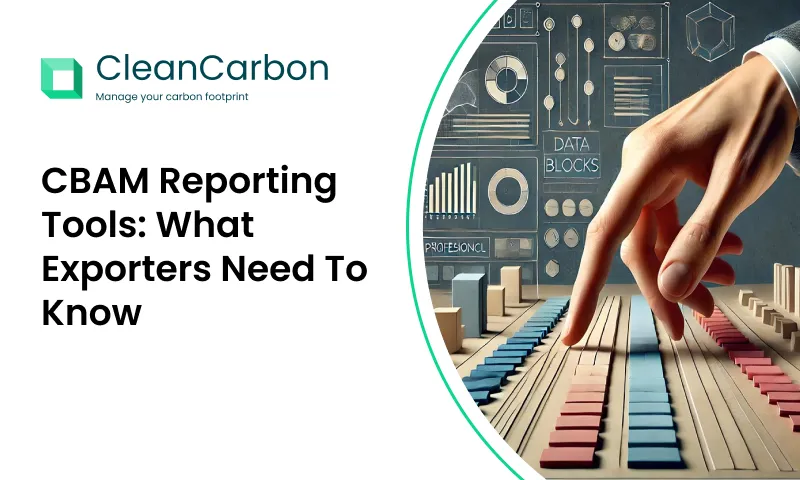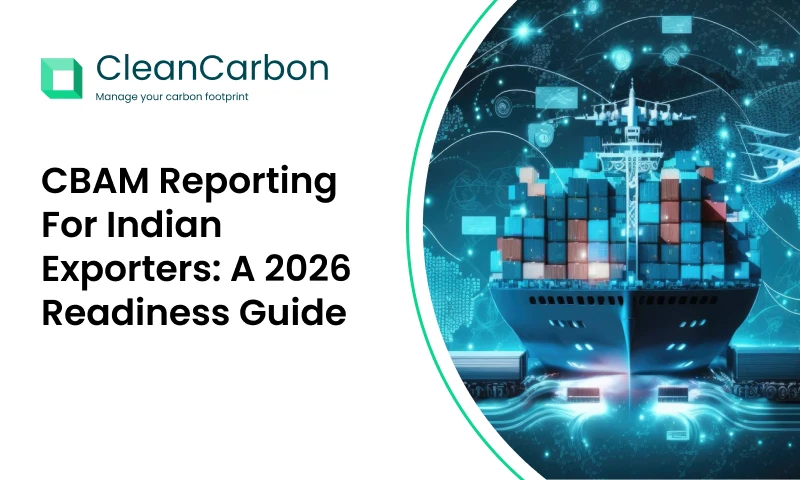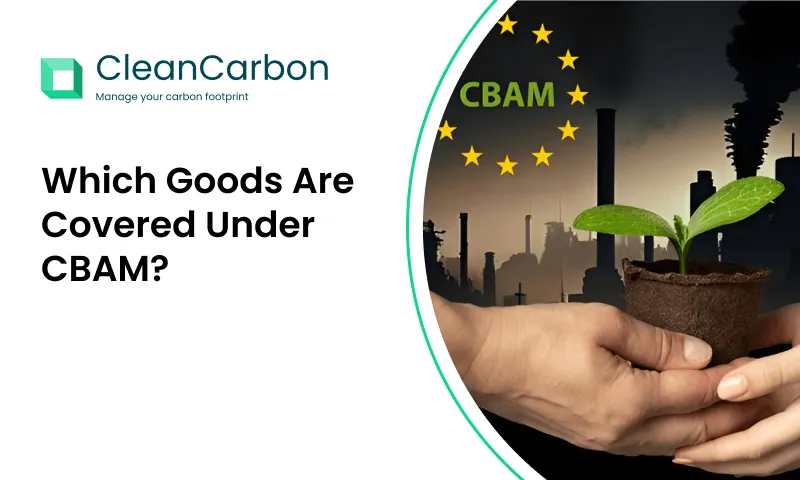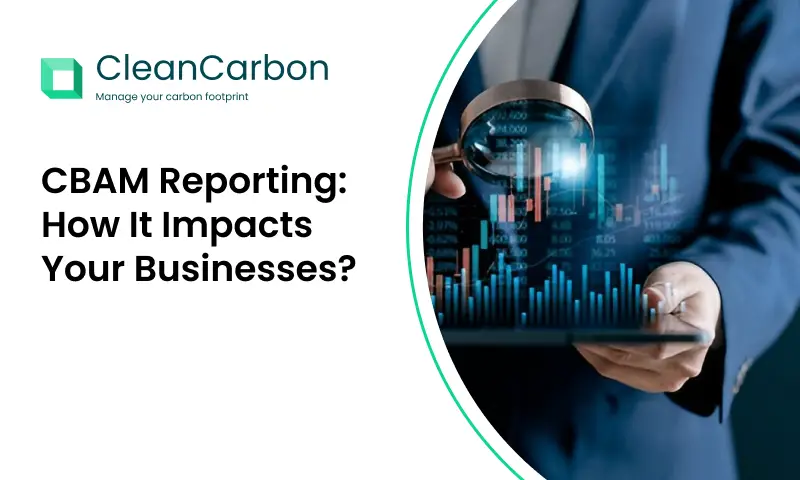Non-compliance with the EU’s Carbon Border Adjustment Mechanism (CBAM) can limit market access, disrupt buyer relationships, and lead to financial penalties. This blog explains why timely CBAM reporting is crucial for exporters in carbon-intensive sectors to stay competitive, build trust, and future-proof their EU trade.
The EU CBAM is a significant carbon pricing mechanism that is impacting businesses and traders. CBAM will most likely continue to affect the more number of sectors and industries in future than it currently covers. At present, it applies to only six carbon intensive sectors and it will cover all the sectors under the EU ETS. Hence, it is critical that the CBAM reporting is not taken lightly. In this blog, we will understand why CBAM reporting matters for your business expansion in the European Union.
CBAM reporting is not like any other climate compliances for corporate sustainability. It is a carbon pricing mechanism introduced to prevent carbon leakage and act as a gateway to future-proofing your businesses in the European Union. It matters for the businesses that have a higher volume of trade with the EU in carbon-intensive sectors and services. Here is a look at multiple scenarios in which CBAM could hamper business:
Limited or no Market Access
One of the most immediate and extremely severe consequences of not complying with CBAM is the inability to access the EU market. Many suppliers from across different parts of the world who are engaged in trade with stakeholders in the EU could face an ecosystem of blacked market access if they fail to comply on time. Once the CBAM enters full fledged implementation phase, importers will be mandated to purchase and surrender CBAM certificates that must reflect embedded carbon emissions in their products. This means there will be no import clearance due to lack of verified emissions data.
Companies will also have limited or no market access if they don’t consistently submit the quarterly reports. This could lead to delayed, penalised and outright rejection of shipments at the EU borders.
No buyers in EU
Both suppliers and EU buyers (importers) are under increasing CBAM pressure. Since the importers are legally obligated to submit the delayed emissions reports for their imports before free circulation in the market, they will not be preferring businesses and companies that are not CBAM compliant. Under such a scenario, they will most likely switch to suppliers who provide actual emissions data. Importers will be building a robust network of suppliers to ensure a reliable, compliant supply chain to avert business risks.
Financial implications

From the start of the definitive regime, there will be financial implications for non-compliance of CBAM. For instance, incorrect, non-timely, incomplete or missing reports could invite penalties.
Besides fines, there’s the risk of supply chain disruption. If your emissions data doesn’t meet verification standards, the EU importer may halt future orders or delay payment while awaiting clarification.
For small to mid-sized exporters, these disruptions can severely impact cash flow, client relationships, and operational planning.
Competitive Disadvantage
There are multiple competitive disadvantages of non-CBAM compliance. Suppliers give out negative signals to both buyers and partners that they lack preparedness, suffer from poor transparency on environmental impact, and reluctance to adapt to global sustainability norms.
CBAM is complex and detailed and requires early and consistent efforts from all stakeholders for successful compliance. It requires building deeper trust and relationships with EU importers, positioning them as future-ready partners to attract climate-conscious investors and buyers.
What should you do?
As the CBAM reporting landscape keeps changing, suppliers and importers find themselves in a bit of a difficult situation. There are often changes in the CBAM rules. Hence, it is critical to always be updated with the CBAM world.
- Identify CBAM-relevant products
- Sart early data collection
- Engage with importers and vendors
- Keep understanding CBAM more
Identify CBAM-relevant products:
Start by confirming which of your goods fall under CBAM. This includes iron and steel, aluminium, cement, fertilisers, electricity, and hydrogen.
Start Early Emissions Data Collection:
Work with suppliers and production teams to map out emissions across your value chain—especially direct (Scope 1) and indirect (Scope 2) emissions.
Engage with EU Importers:
Proactively communicate your commitment to CBAM reporting. This builds confidence and positions you as a reliable partner in a regulation-heavy environment.
Keep updated with CBAM:
Amid the rapidly changing CBAM landscape and climate policies across the world, only thing that can keep businesses safe from financial risks are keeping one updated with all the changes in advance.
Conclusion: Compliance Is Your Competitive Advantage
CBAM is not just another regulatory hurdle—it’s a signpost of where global trade is heading. Carbon transparency is becoming a prerequisite for market access, especially in the EU.
Failing to report under CBAM doesn’t just expose you to penalties; it risks your relevance in one of the world’s most valuable markets.
By investing in reporting systems now, you’re not just complying—you’re future-proofing your business, strengthening customer relationships, and setting yourself up for success in a low-carbon economy.






